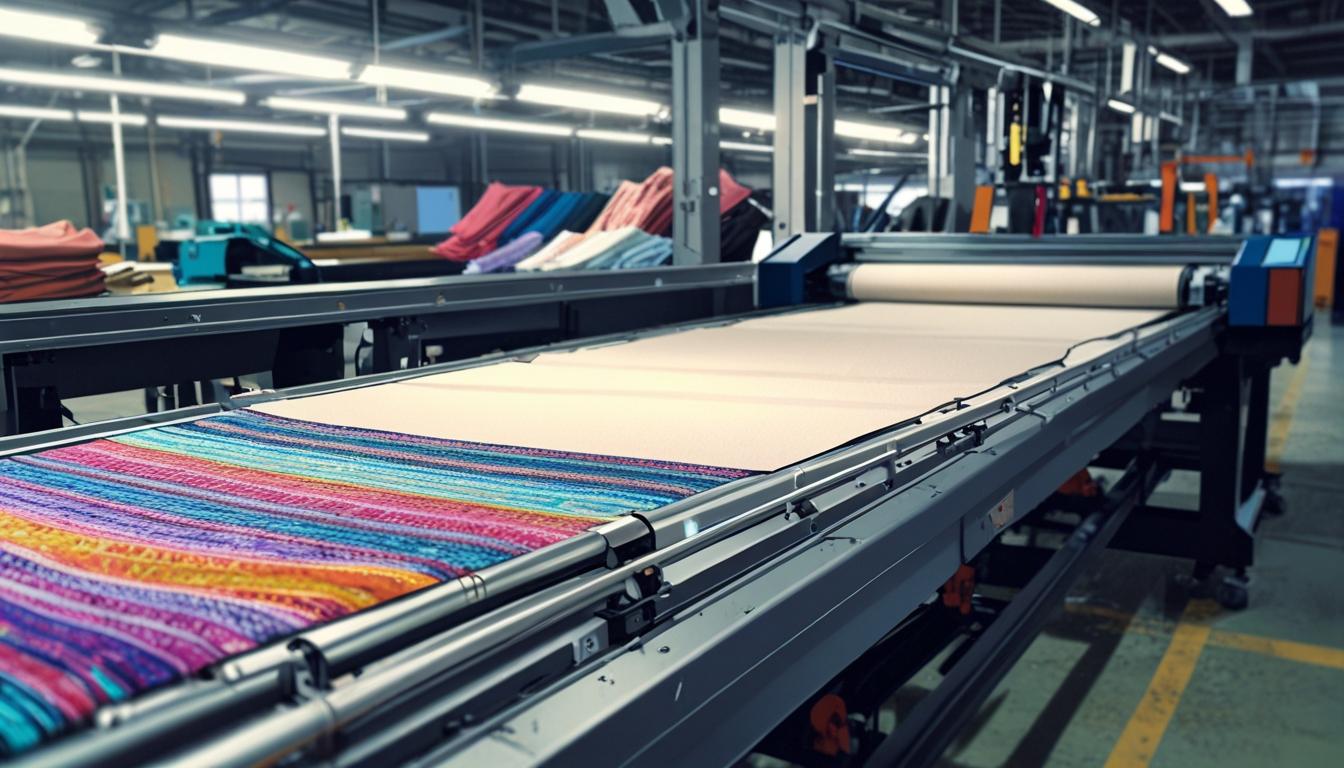Matoha, a UK-based startup, has developed AI-powered scanners that rapidly and accurately identify fabric types, improving textile sorting and recycling processes. This technological breakthrough aims to reduce the millions of tons of textile waste sent to landfill or incineration annually and advance circular fashion.
As textile waste continues to reach alarming levels globally, UK-based startup Matoha is pioneering a technological breakthrough aimed at transforming textile recycling processes. Utilizing AI-powered scanners, the company has developed a method to quickly and accurately identify fabric types, a crucial step in enhancing the efficiency and scalability of recycling within the fashion industry.
Textile waste generates over 15 kilograms per person annually in Europe alone, predominantly from discarded clothing and home textiles. Despite the volume, only a minute fraction of this waste is recycled back into usable fibers. One of the significant challenges in expanding textile recycling lies in the precise identification of material composition, which is vital for sorting fabrics such as cotton, polyester, wool, viscose, nylon, and their blends, all requiring different recycling treatments. Current fiber identification techniques often involve costly laboratory procedures or are incompatible with the rapid sorting needed in large-scale operations. Consequently, up to 60% of textile waste ends up being incinerated or landfilled, while a substantial portion of the textiles exported for reuse is ultimately discarded due to poor condition or low resale value.
Matoha addresses this bottleneck through its compact, AI-driven scanners equipped with advanced spectroscopy and machine learning technology. These devices can deliver fabric composition results in under a second, significantly accelerating the sorting process. The company offers two primary types of devices: handheld scanners designed for portability and ease of use in smaller settings such as warehouses or charitable organizations, and desktop industrial scanners tailored for integration into larger sorting facilities to handle high volumes without compromising operational speed.
According to Hans Chan, CTO and Co-founder of Matoha, “Textile sorting today is a manual, error-prone process. Our goal is to make it smarter, faster, and scalable. We’re enabling a future where every end-of-life garment is correctly sorted and kept in the value chain.” These scanners are intentionally designed to be user-friendly with minimal training requirements, cost-effective by eliminating the need for expensive lab testing, and are manufactured domestically in the UK by Matoha’s expert team. By enhancing human sorting capabilities, the technology helps divert materials to suitable recycling or reuse pathways, increasing resource recovery and reducing cross-contamination.
Beyond textiles, Matoha’s AI system shows potential applications in sectors that deal with mixed-material waste, including automotive, upholstery, and industrial textiles. The AI algorithm powering the scanners continuously refines its accuracy through ongoing learning, improving its ability to differentiate subtle material differences over time.
The startup has recently completed a successful Seed funding round led by Archipelago Ventures and the Circular Plastics Accelerator, with additional support from Conduit Connect, British Design Fund, and Fashion for Good. This capital injection will fund further development of Matoha’s AI models and hardware, enhance the handheld scanner’s capabilities, and advance automated robotic sorting solutions planned for the next stage of growth. Chan remarked, “Our dream is that every end-of-life garment will pass through a Matoha system. This investment allows us to make that dream scalable, with AI and automation at the heart of it.” Matoha anticipates a second funding round by late 2025 to accelerate the deployment of its robotic systems across the industry.
Industry experts have recognized Matoha’s approach as a key enabler for circular fashion. Justin Guest from Archipelago Ventures commented that the technology “unlocks textile sorting at scale,” while Claire Shrewsbury of WRAP described the scanners as “a cost-effective and essential step” toward closing the loop within the fashion supply chain.
Ultimately, Matoha’s innovation addresses a pivotal gap in the circular textiles economy by reducing the volume of textiles sent to landfill or incineration, enhancing the feasibility of direct fibre-to-fibre recycling, and supporting businesses across fashion and waste management sectors in achieving sustainability objectives. With textile waste at unprecedented levels, Matoha’s combination of speed, precision, and artificial intelligence technology is setting new standards in smart recycling, potentially making circular fashion operations more practical and widespread than ever before.
Source: Noah Wire Services




